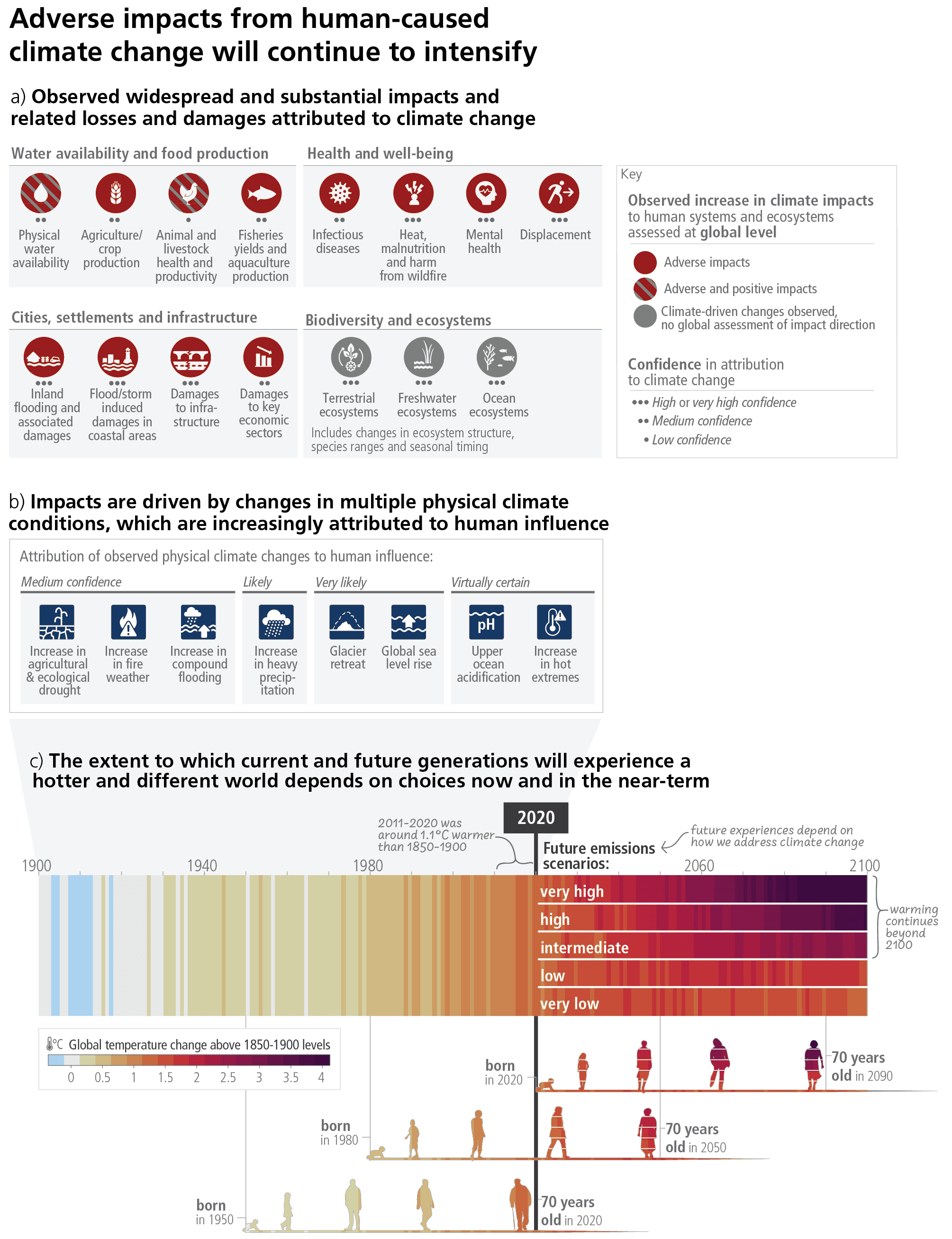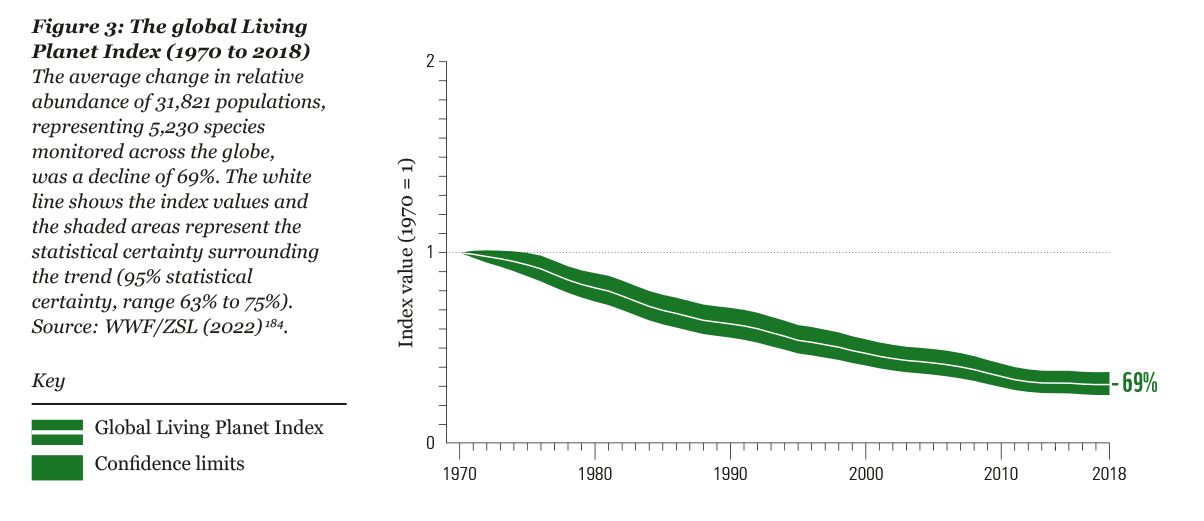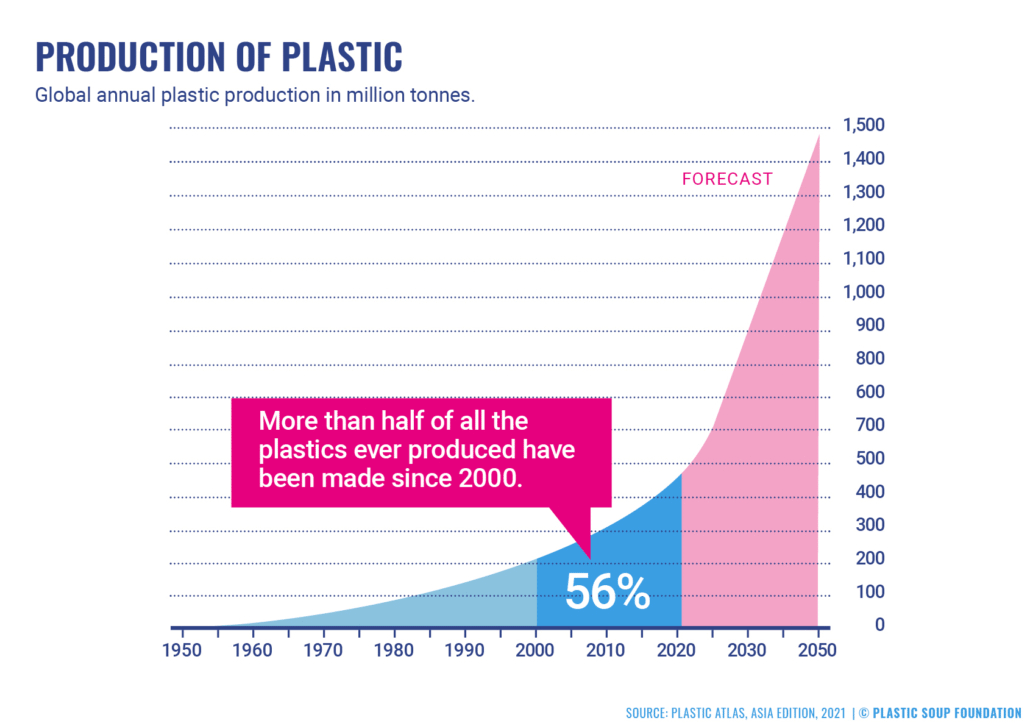Dystopia
The perception of today's youth is that we are stumbling from one crisis to the next, that crises are the new daily norm, and with it the future of the world as we knew it is in danger - existential danger.
Climate Crisis
The global climate crisis is one of the greatest existential challenges of our time. The effects of climate change are becoming increasingly apparent and threaten not only the environment, but also our society and economy. Global warming has already led to rising temperatures, more frequent extreme weather events and rising sea levels. These changes are impacting biodiversity, agriculture and the health and safety of billions of people worldwide.
The main cause of the climate crisis are man-made emissions of greenhouse gases, primarily CO2, from the use of fossil fuels such as coal, oil, and gas in energy production, industry, and transportation. Global CO2 emissions have increased dramatically in recent decades, and current trends indicate that emissions will continue to rise.

To address the global climate crisis, comprehensive action is required at all levels. At the global level, all countries must work together to end greenhouse gas emissions and accelerate the transition to renewable energy. This includes helping countries of the global south build climate-friendly infrastructure and technologies.
At the national level, governments must drive the expansion of renewable energies, end the use of fossil fuels and create incentives for environmentally friendly behavior. Companies also need to take responsibility and make their production and supply chains emission neutral and environmentally friendly.
At an individual level, we can all do our part by reducing our energy consumption, using climate-friendly mobility, consuming sustainably and getting involved in climate protection. The climate crisis requires decisive action and cooperation at all levels. This is the only way we can limit the consequences of climate change and secure a future worth living for ourselves and future generations.

Institute of Soil Research, BOKU Vienna
The amount of carbon dioxide in the air today is higher than it has been in the last 14 million years. Researchers proved this by analyzing carbon isotopes and air samples.
Source: globalcarbonproject.org

The Intergovernmental Panel on Climate Change (IPCC) has released a new report on the state of the climate crisis. Thousands of studies were examined and evaluated by hundreds of scientists: The conclusion is that it is possible that the average global temperature could rise by 4.5 to 5.5 degrees Celsius over the next 80 years compared to pre-industrial levels if no effective action is taken to reduce greenhouse gas emissions. Such large temperature rise represents an extremely dangerous and potentially catastrophic situation for humanity and a majority of animals and plants on the planet and can be classified as existential threat to survival.
Source: ipcc.ch
Biodiversity Crisis

The biodiversity crisis refers to the rapid loss of different species of plants, animals, and other organisms around the world. This loss of biodiversity is caused by human activities such as habitat destruction, pollution, climate change and overfishing. It is a major environmental problem that threatens the health of ecosystems and the services they provide, such as clean air and water, food and medicine. The loss of biodiversity also has economic and social impacts. Species extinction is an irreversible far reaching ecosystem disruption. The data is clear: due to the unsustainable use of our planet's resources, we are currently experiencing the twin crises of biodiversity loss and climate change. The consensus among scientists is that unless we stop viewing these crises as separate problems, neither one will be solved successfully.
Resource Crisis
Given the current economic system's heavy reliance on their unsustainable usage, meeting the world's demand for natural resources including water, electricity, minerals, and food is becoming an increasingly difficult task. This is known as the "resource crisis." The demand for resources is rising along with the world population sometimes showing production trends with exponential growth. Many of these resources, though, are limited and non-renewable, so once they are depleted, they are permanently lost.

plastic is primiarly produced from fosile resources, recyclign ratios are
still very low and a lot of waste plastic ends up polluting oceans, waterways and soils.
Additionally, the manner in which we extract and utilize resources frequently has detrimental effects on the environment and society, such as pollution and climate change, which jeopardizes the long-term viability of our economic activities. To balance the consumption of resources with their preservation and regeneration for future generations, a sustainable circular bioeconomic structure that is based on conscious consumption and reuse of all materials must be implemented as soon as possible.
Changing the Narrative

Institute of Forest Ecology, BOKU Vienna
It is time for a new narrative: instead of giving up, these crises now offer us an opportunity - to work together to shape a better world for us all. Read more about this utopia and the vision of Our Earths VR.

 Wechsel auf Deutsch
Wechsel auf Deutsch






